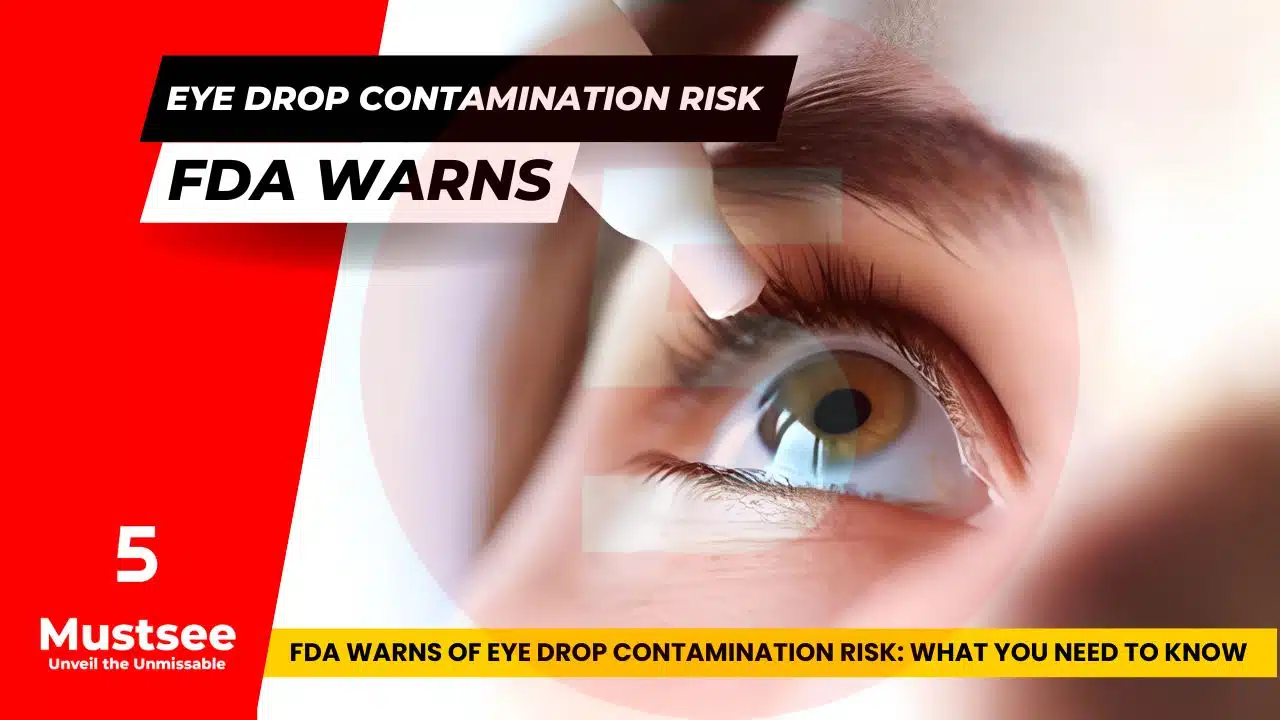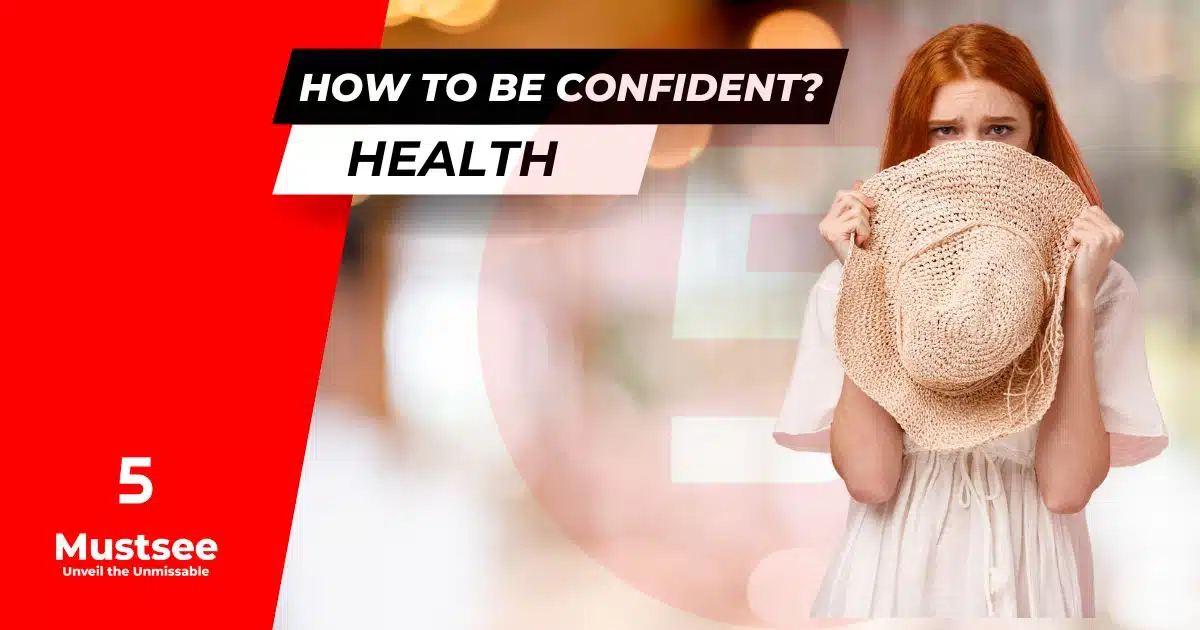
Reading the label before using eye drops to treat conditions like dry eyes, allergies, and infections is crucial. The FDA recently warned about specific eye drops containing MSM (methylsulfonylmethane) due to possible bacterial and fungal contamination. These contaminated eye drops can cause severe eye infections, leading to vision loss or even death.
This article seeks to expound upon the importance of MSM in eye drops and explore the specific eye drop products affected by the FDA warning. Additionally, we will highlight the potential dangers of using contaminated eye drops. And provide information on controlling and treating infections caused by tainted eye drops. Additionally, we will give resources and links for more information on eye drops, MSM, or eye infections.
What is MSM, and Why is it Used in Eye Drops?
MSM is a naturally occurring compound in plants, animals, and humans. People also use it as a dietary supplement for its anti-inflammatory, circulation-enhancing, and tissue-repairing properties. MSM eye drops are used by some people to improve eye health, particularly for those with dry eyes, glaucoma, cataracts, or macular degeneration. These eye drops aim to moisturize the eyes, decrease eye pressure, dissolve eye deposits, and protect against oxidative stress. However, there is not enough scientific evidence to support these claims. The FDA has not approved MSM as a drug or element in eye drop products. Clinical trials have not assessed the safety and effectiveness of MSM eye drops.
Which Eye Drop Products Are Affected by the FDA Warning?
The FDA warning applies to several eye drop products that contain MSM as an active or inactive ingredient. Various companies distribute these products under different brand names. Upon testing samples of these products, the FDA found microbial contamination, including bacteria and fungus.
Some of the affected products include:
- Regenerative Healing Drops by Regenerative Healing LLC
- MSM + Silver Water Drops by Herbal Doctor Remedies
- Oct-Heal by Dr. Fitt
- MSM Gold by Trinity School of Natural Health
- OptiMSM Eye Drops by Kala Health
The comprehensive list of impacted products is available on the FDA website. The FDA advises consumers not to buy or use these products and to dispose of them safely.
What are the Potential Risks and Complications of Using Contaminated Eye Drops?
- Using contaminated eye drops can cause severe eye infections that can damage your eyesight or even threaten your life. Some symptoms and signs of an eye infection are:
- Redness
- Pain
- Swelling
- Discharge
- Blurred vision
- Sensitivity to light
If you experience these symptoms after using eye drops, seek medical attention immediately. Do not ignore or self treat your eye infection, as it could worsen.
An eye infection can lead to severe complications, such as:
- Corneal ulcer: A corneal ulcer is a lesion or opening in the cornea, the transparent front layer of the eye. Bacteria, fungi, viruses, or parasites can cause it. A corneal ulcer can cause severe pain, vision loss, scarring, or eye perforation.
- Endophthalmitis: Endophthalmitis is an inflammation or infection of the inside of the eye. Bacteria or fungus can cause it by entering the eye through a wound, surgery, injection, or contaminated device. Endophthalmitis can cause blindness, pain, redness, swelling, or pus in the eye.
- Sepsis: Sepsis is a critical and potentially life threatening medical condition in which the body’s reaction to an infection harms its organs and tissues. Any disease, including an eye infection, can cause it. Sepsis can cause fever, chills, rapid breathing, low blood pressure, confusion, or organ failure.
Several studies have reported severe eye infections caused by contaminated eye drops. Therefore, following the FDA warning and avoiding using the affected products is essential.
How to Prevent and Treat Eye Infections Caused by Contaminated Eye Drops?
The best way to prevent eye infections caused by contaminated eye drops is to stop using them and dispose of them safely. You should also check the FDA website regularly for updates or recalls on eye drop products. If you experience any symptoms of an eye infection, seek medical attention immediately.
Besides seeking medical attention, general precautions can help prevent eye infections. These include:
- Washing your hands thoroughly before using eye drops or touching your eyes.
- Not sharing eye drops or makeup with others.
- Avoid rubbing your eyes with dirty hands.
- Removing contact lenses before using eye drops.
If you develop an eye infection, your doctor will likely prescribe antibiotics, antifungal eye drops, or ointments. They may also recommend warm compresses or other home remedies to alleviate symptoms. In conclusion, it is essential to read the labels of any eye drops before using them. The FDA warning regarding contaminated eye drops containing MSM highlights the potential risks of using unapproved and untested eye drop products. Following the FDA warning and practicing good hygiene habits can help protect your eye health and avoid serious eye infections.
Seeking Medical Care for Eye Infections
Suppose you have already used contaminated eye drops and developed an eye infection. In that case, you should seek medical care as soon as possible. After examining your eyes, your doctor recommends and prescribes a suitable treatment.
Antibiotics for Bacterial Eye Infections
Overview
Antibiotics are medications designed to eliminate or impede bacteria growth. Doctors can administer them as eye drops, ointments, pills, or injections.
Effectiveness
Antibiotics effectively treat bacterial eye infections like conjunctivitis, blepharitis, or corneal ulcers.
Antifungals for Fungal Eye Infections
Overview
Antifungals are drugs that kill or stop the growth of fungi. Doctors can administer them as eye drops, ointments, pills, or injections.
Effectiveness
Antifungals effectively treat fungal eye infections like keratitis, endophthalmitis, or dacryocystitis.
Steroids for Inflammatory Eye Conditions
Overview
Steroids are drugs that reduce inflammation and swelling. Doctors can administer them as eye drops, ointments, pills, or injections.
Use and Caution
Steroids find use in treating inflammatory eye conditions like uveitis, scleritis, or allergic conjunctivitis. However, it’s important to note that steroids can heighten infection risks or exacerbate existing infections. Therefore, their use demands caution and medical supervision.
Surgical Interventions for Severe Cases
In addressing damaged tissue or organs within the eye, doctors might contemplate surgical interventions for removal or repair. Surgical procedures can address severe corneal ulcers, endophthalmitis, glaucoma, cataract, or retinal detachment.
Individualized Treatment Approaches
The treatment for eye infections caused by contaminated eye drops may vary depending on the individual case and the type of microbe involved. Therefore
Conclusion
People commonly use eye drops to treat various eye conditions and enhance eye health. However, some eye drop products that contain MSM have tested positive for contamination with bacteria and fungus, which can lead to severe eye infections. The FDA has warned buyers not to use these products and to discard them properly.
Eye infections resulting from tainted eye drops can result in serious complications, including vision loss or even death. Therefore, it is critical to seek medical attention immediately if you have any signs or symptoms of an eye infection after using.
FAQs
Q: What is MSM?
A: MSM, a naturally occurring organosulfur compound, exists in certain plants, animals, and humans. Bevacizumab is additionally marketed as a dietary supplement, claiming diverse health benefits.
Q: Why is MSM used in eye drops?
A: MSM is used in eye drops to improve eye health, especially if you suffer from dry eyes, glaucoma, cataracts, or macular degeneration. MSM is supposed to moisturize the eyes, reduce eye pressure, dissolve eye deposits, and protect the eyes from oxidative stress.
Q: Which eye drop products are affected by the FDA warning?
A: The FDA warning applies to several eye drop products that contain MSM as an active or inactive ingredient. Various companies distribute these products under different brand names. You can find the complete list of the affected products on the FDA website. You can find the full list of the affected products on the FDA website.
Q: Using contaminated eye drops may pose what risks and complications?
A: Using contaminated eye drops can cause serious eye infections that can damage your eyesight or even threaten your life. Some potential risks and complications are corneal ulcers, endophthalmitis, and sepsis.




